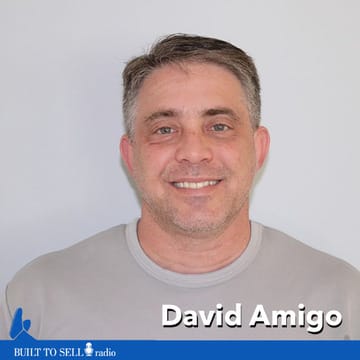About this episode
Our show is all about maximizing your take from the sale of your business. We’re about helping the seller outmaneuver the buyer to maximize the seller’s take from an exit. We think it’s a noble cause, but every once in a while, a guest reminds us that selling a business doesn’t have to be so confrontational.
This week’s episode of Built to Sell Radio features David Amigo. He co-founded Carolina Country Homes, a modular home dealer. Amigo grew his company to $10 million in annual revenue, but never loved the modular home business where red tape and financing challenges are commonplace.
After 17 years, Amigo decided it was time to sell. He hired a business broker who pegged the company to be worth 2-4 times Seller’s Discretionary Earnings (SDE) — a form of profit that took into consideration Amigo’s salary, bonus, and other perks he earned from the business. Amigo’s broker found a buyer who made a fair offer, which Amigo accepted. It wasn’t enough money for Amigo to retire. Still, it was enough for him to buy a vacation home in Maine and take his kids on an adventure of a lifetime.
Amigo’s story shows that there is an alternative path to selling your business. Rather than worry about squeezing every last dollar out of an acquirer, you can accept a fair offer and move on to other things.
Amigo’s advisor revealed his main challenge is not locating buyers, it’s finding good businesses to sell. If you’re curious to know how sellable your company is, take the Value Builder questionnaire. We’ll provide your score on the eight factors acquirers care about most.

About Our Guest
David Amigo was born in Brooklyn NY and currently lives in Fort Mill SC with his wife of 20 years Lisa and their 3 children Joshua, Zachary and Cooper Elizabeth. He is a graduate of SUNY Albany with a degree in Business.
He has worked for Slimfast foods, Vanguard, an options trading company on the American stock exchange as well as running a family manufacturing business before starting Carolina Country Homes. He is currently the owner of a high-end landscaping company in Charlotte NC, G&G Landscape and Irrigation.


